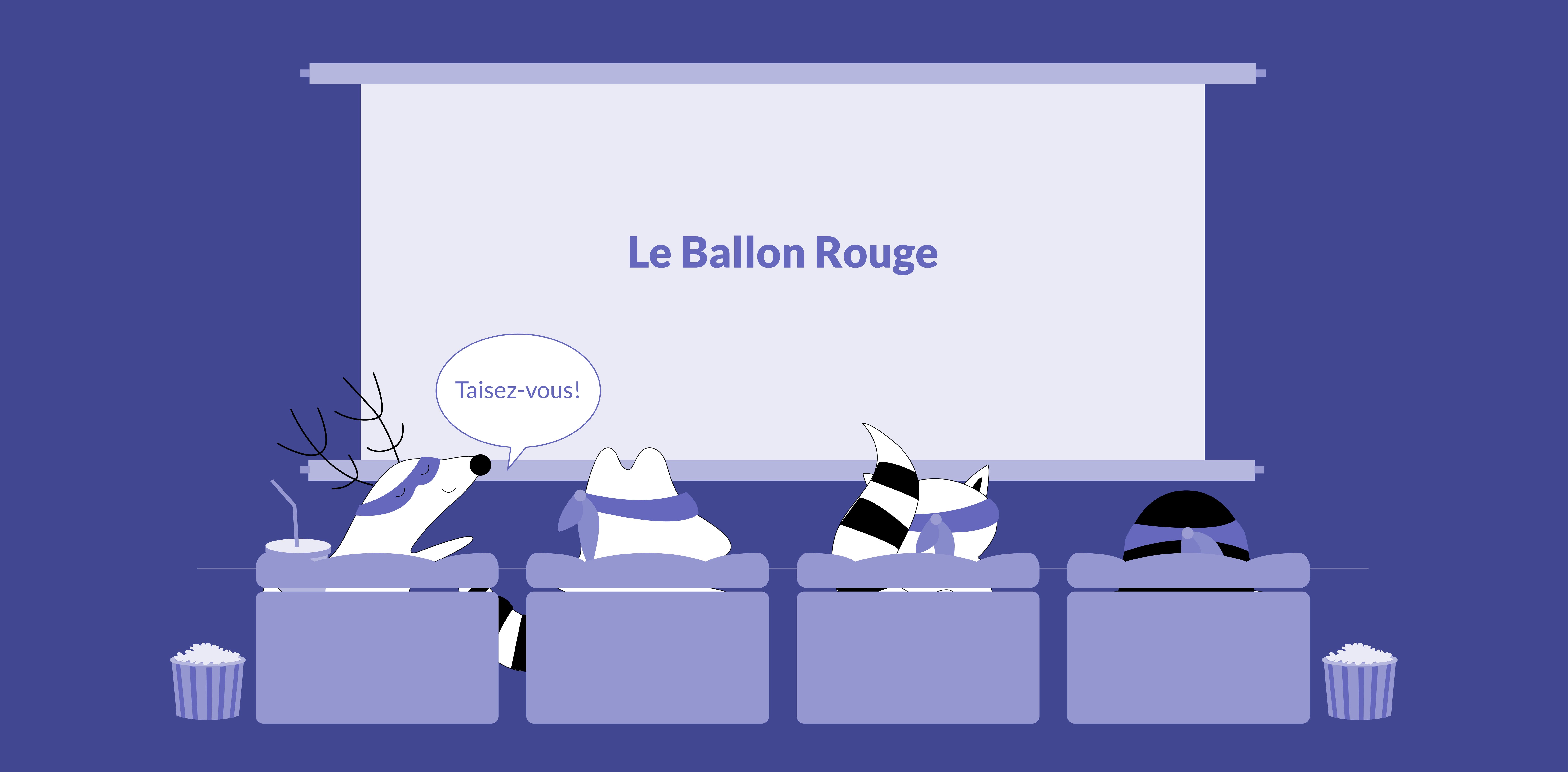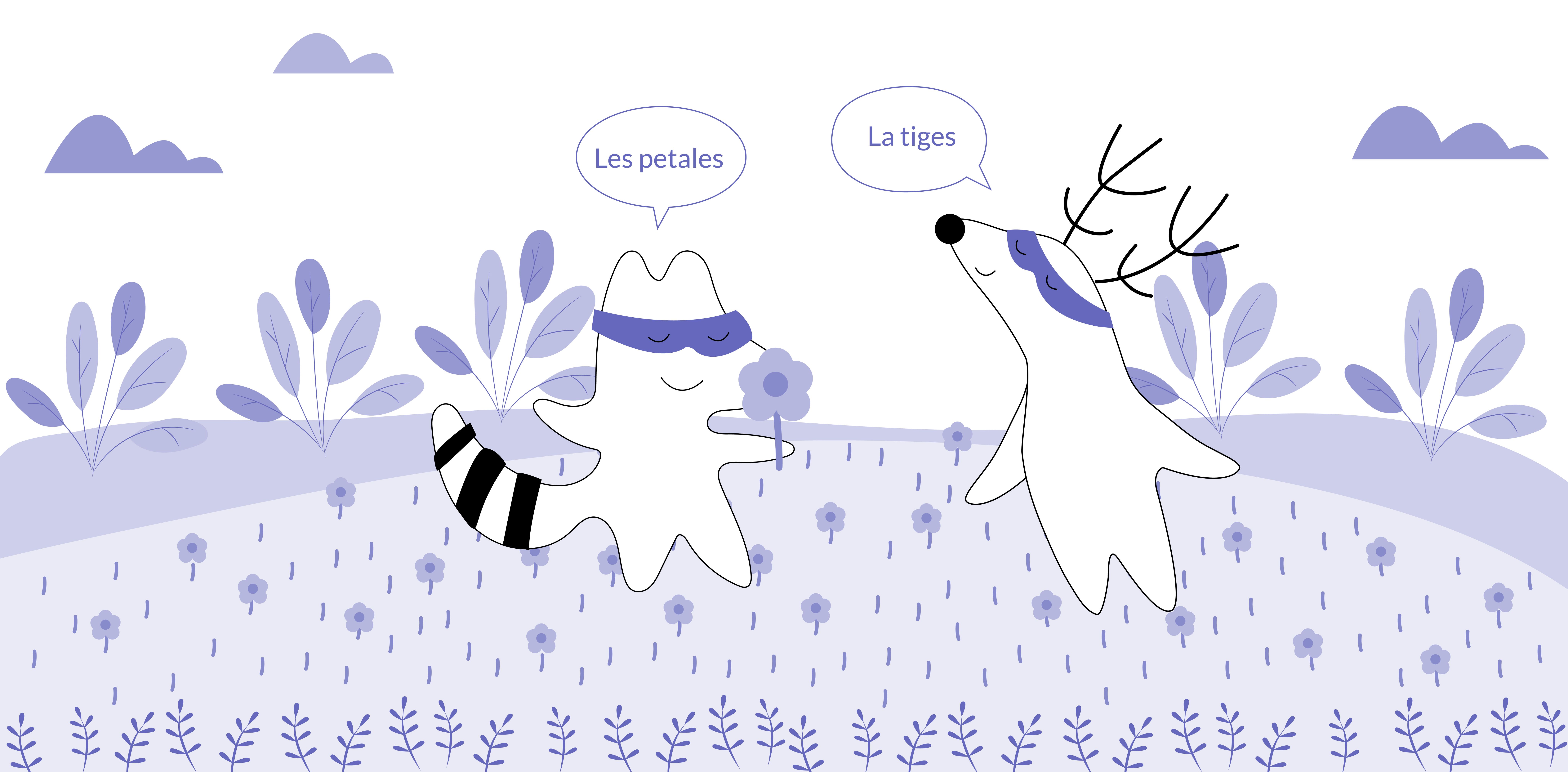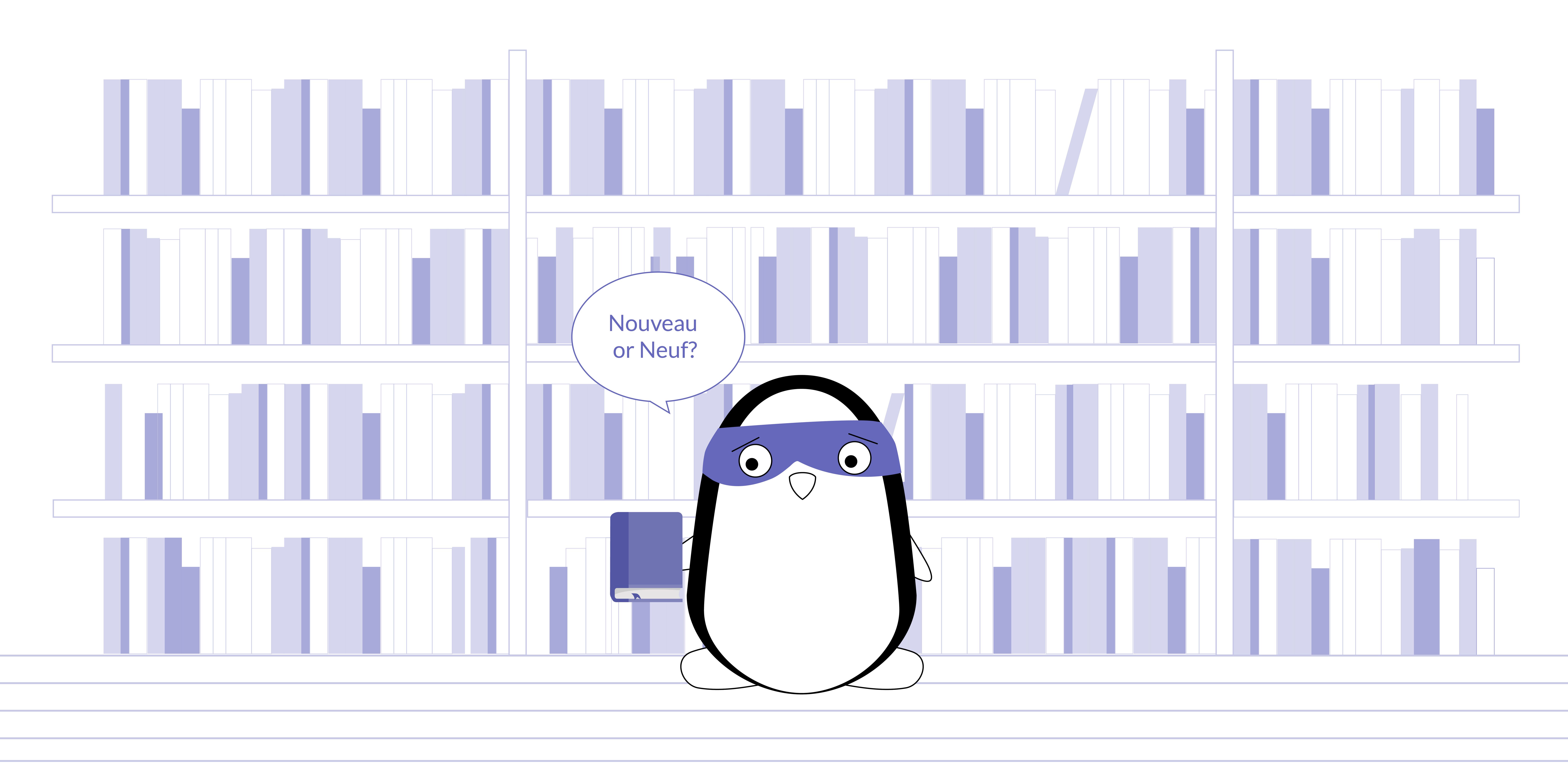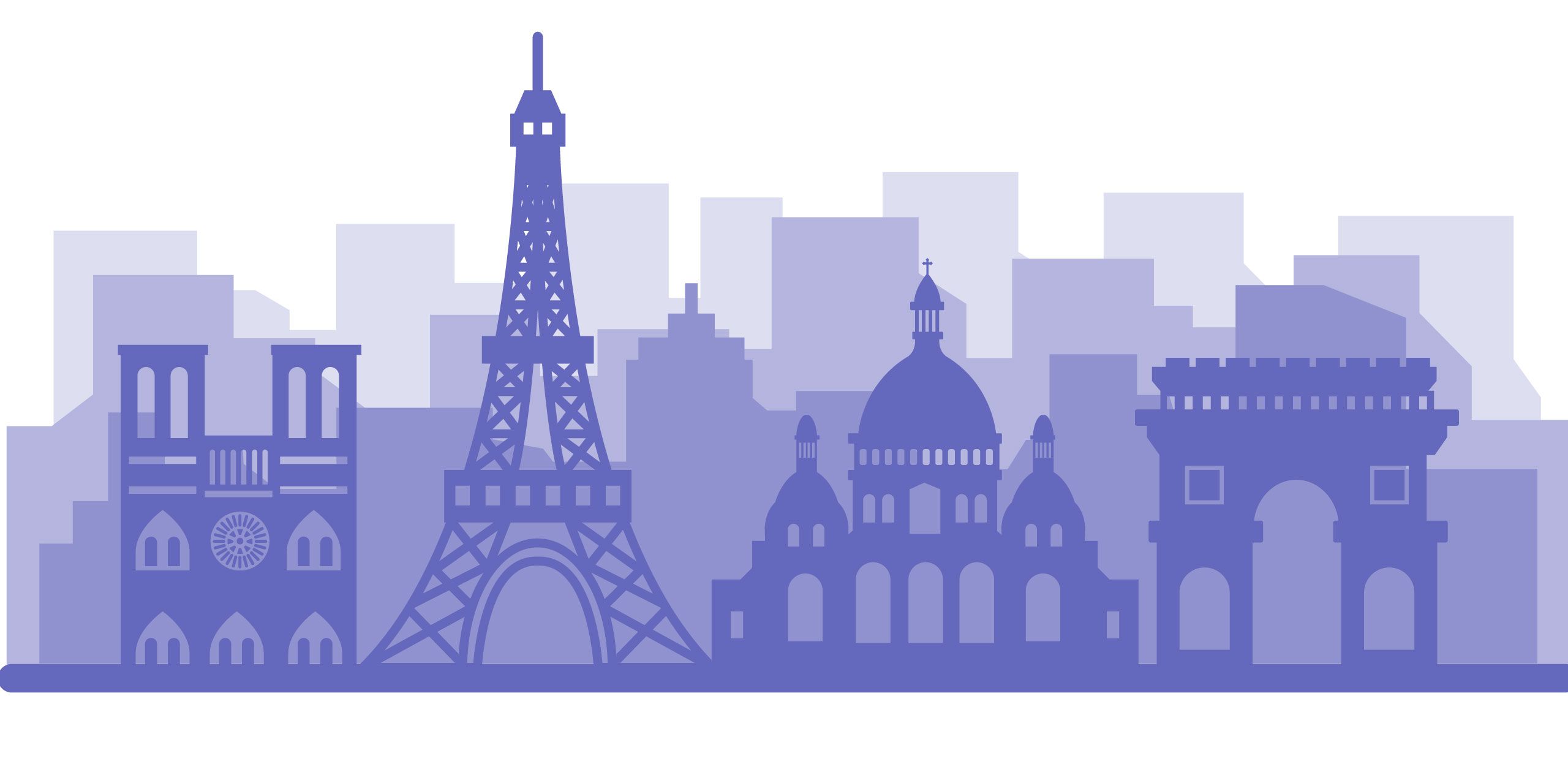
Hello! Could you tell us a bit about yourself?
Hi! My name is Natalia, I’m 40 years old. I was born and currently live in Belarus, Grodno. I have a PhD in French literature and work as an Associate professor at a university.
How long have you been studying/speaking French?
I started learning French in 5th grade, together with English. I was nine years old at the time. This was pretty challenging, but I managed – along with English, I’ve been speaking French for 31 years now.
I’ve studied French for seven years at school and then another five years at a university. After that, I became a French teacher – and I have been teaching people French for eighteen years now.
What was the reason why you decided to learn French?
I decided to take on learning French thanks to my mother’s advice. At the time, I was a young girl, and of course, I didn’t know which foreign language to start learning at school – English, German, or French.
Mom told me that French is a great, even grand language – the language of culture, education, aristocracy, which is why it’s important to start learning it as my first foreign language. I took her advice and never regretted this decision. If I could go back today, I would do the same.
What helped you stay motivated to learn French?
Learning foreign languages is always awesome because the language creates some kind of a code, a system, and you become a part of this system, a language system. So, you don’t only focus on the country, its culture, or its people, but altogether, you become a part of another world, a secret world that is not accessible to other people.
I remember when I was still in school, my friend and I sometimes started talking in French in public places, when surrounded by other people – outside, in public transport, at parties. Everybody was always startled because French was not widespread (and it is still not at this moment).
If we were speaking in English, which was and still is quite popular, it would have been pretty easy to understand us, but French made us look mysterious and exotic – and somehow cool. We stood out from the crowd and had a lot of fun with that.
It was especially helpful when we were in a company with guys and wanted to share our thoughts in a secretive way. Such usage of French, and, less often, English, made us look interesting, and, of course, brought us quite a lot of extra points in the eyes of others.
If you know a foreign language – especially something as beautiful and melodic as French, this does make you feel special somehow.
What do you find the most amazing about the French language?
I’m continuing to learn French not just because I teach it, but also because for me, French people are amazing. To this day, the French have been people who move forward, think outside the box, and have their own system of values and priorities. These are people with a different point of view who are never like the others.
If the whole world would move in the same tendency or concept, it’s 100% sure that the French, moving in the same direction, would find something special, something individual, something of their own. Strong individuality is what differentiates the French from all the other European nationalities.
I like this treat – individuality is amazing, as it makes you not like everyone else, you stand out from the rest thanks to it. I’m continuing to learn French and when I teach it to my students, I’m trying to infect them with my love for France, the French people, and the French language.
I want to show them that France is magnificent, that it’s special, that it’s important to go to Paris. After all, it’s like they say: “To see Paris and die” – although I like to mention that dying is optional, you can continue on living, just see France at least once.
France as individuality, and the French language as something special and unique – this is my teaching motto.
Have you ever been to France? Tell us more about the trip
I have been to France only twice, unfortunately. The first time was in school, I was in my 10th grade (beginning of high school), and our class had a two-week trip to France.
The first city we visited was Paris, and we spent just around a day and a half there before leaving for Bordeaux. Of course, I should mention that it was my first trip abroad – so it was overall a new and breathtaking experience for me and many of my classmates.
It was very cool, although we did have quite a culture shock (at that moment I didn’t know what that was called, but I do now). France was something completely different and, at that point, it felt like we were in another world. The different culture, people, food, smells, tastes, and habits – all of those were very new and very unusual.
After all, we didn’t have the internet then, it was 1997, and everything we knew about France we have learned from the French language textbooks. Of course, we knew about the Eiffel Tower, Notre-Dame-de-Paris, and other attractions, but now we had a chance to see everything by ourselves.
The trip cost quite a lot, but my parents decided that I should go see more of the world, and so I went. It was highly interesting: as I mentioned, we spent a day and a half in Paris and stayed in a hotel on the outskirts of town.
I’d never seen such a hotel before, with three beds in a room, and a common bathroom in the hallway, but the price was very low – something around $10 per night, which was quite cheap for Paris at that time.
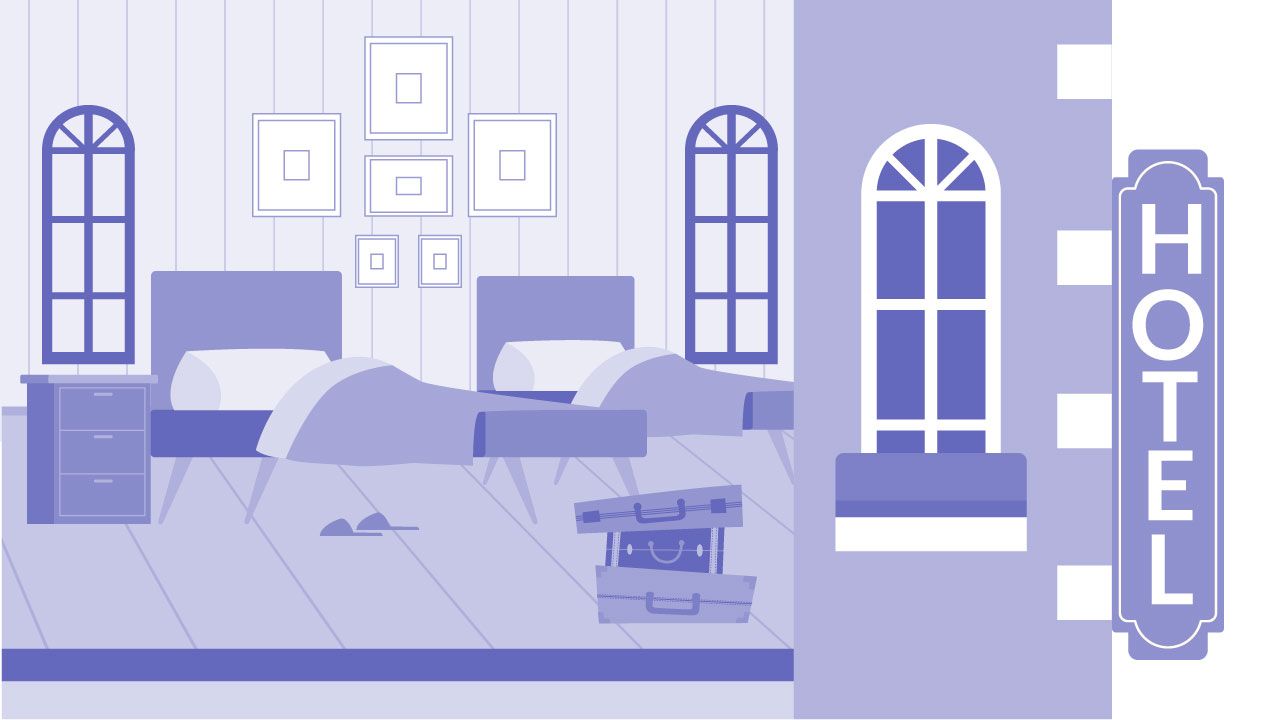
I don’t remember what we ate, or where we ate, or any other details – we were young and the trip was so much fun for us. I remember that we traveled by tour bus, and when we arrived in Paris, we screamed: “Hurray Paris, we see you!”
It was amazing and breathtaking – after all, Paris is Paris, nothing else to say.
I think that at that moment, during my first trip to France, I didn’t fully realize that this is France. It was great to just go somewhere abroad, and change the atmosphere, the place.
It was really the second trip that filled me with more of a conscious, sound, and thoughtful realization that I was in France. I learned about the au pair program and decided to go on it at that moment, as I understood that later I would like to get married and have children, stay at home more, and probably wouldn’t have another chance to go to France for a long trip.
My agency found a receiving family for me – we talked on the phone, and they praised my French a lot. At that time, I’d finished a school specializing in English and French and had done three years of French studies at a university.
The receiving family was pleasantly surprised by my level of French and even confessed that the girl who had stayed with them via this program before barely knew French at a much worse level, which created huge problems for everyday communication.
They asked me to come – and so I went to France once again.
The requirement of this program was that I had to study. Several times per week I went to Paris, to Sorbonne. I always took SNCF (a French high-speed train), which is why the trips were really short – seven to eight minutes, as I recall.
At Sorbonne, I was asked to take a placement test and was straight away admitted to the up-level class for foreigners. The learning group was really diverse: people from China, India, other countries, but most women – I don’t remember having any guys in class.
It was very exciting, as everybody knew some French, but had their own culture and mentality, which made the classes a wonderful place for communication. And of course, I have to pay tribute to our teacher, as she tried to make our learning experience at Sorbonne as positive and effective as only possible.
I liked living with a French family a lot. It was nothing like regular tourism, when you come for a few days, live in a hotel, and eat in the restaurants. This is something completely different – you see French everyday life and can feel like a regular French person.
You live by their rules and schedule, get used to their household and eating habits, see how they receive visitors, how their weekends and vacations look like.
I remember that for me, it was a huge surprise that the family I was living together with had vacations four times a year. In winter, they went skiing. In summer they’d go swimming in the Atlantic ocean. And in spring and autumn they went to the countryside, just to get a breath of fresh air and rest a bit.
Vacation four times a year had a wow effect on me, especially taking into account that they went as a whole family. There were two daughters in the family, and the parents adapted their schedule in such a way as to leave for their vacations.
Several times, I have talked to grandparents from both sides of the family. It was a completely different experience, as this was another generation of French people – very old and very French, who remembered how after the war, they made pickled veggies and other preserved food – which was something most modern French didn’t do anymore at that time.
It was very pleasant to talk to my French family and other French people, who were intelligent people, and I was able to learn a lot of new, interesting things.
This French trip has become a significant part of my life. I spent about seven or eight months there until the circumstances forced me to leave. And still, I never regret this experience, as I learned and experienced so much.
I first saw that the country and the city could be multinational, and so many different people could coexist together in the melting pot that Paris is.
Why did you decide to start teaching French?
After finishing university, I applied for graduate studies. As a part of them, I had started teaching French and English – and even though I liked French a lot, English was simply in higher demand, so I had more experience teaching it in the end.
Nevertheless, when I finished my studies, my master’s diploma said that I was qualified both for teaching French and English – and that’s when my career as a teacher started.
Can you tell us what it’s like to be on both sides of this job: be a French student, and then later, a French teacher?
Being a student studying French and being a teacher of French is equally thrilling and interesting. The only difference is that when you’re a student, you feel somewhat like you’re in a huge desert, looking for something without knowing what, and not knowing where you will be at the moment. The amount of information is enormous, and this can be a little overwhelming.
When you are a teacher, it’s like you are familiar with this dessert and each grain of sand. You understand the paradigm clearly, and based on this paradigm, you can teach the students.
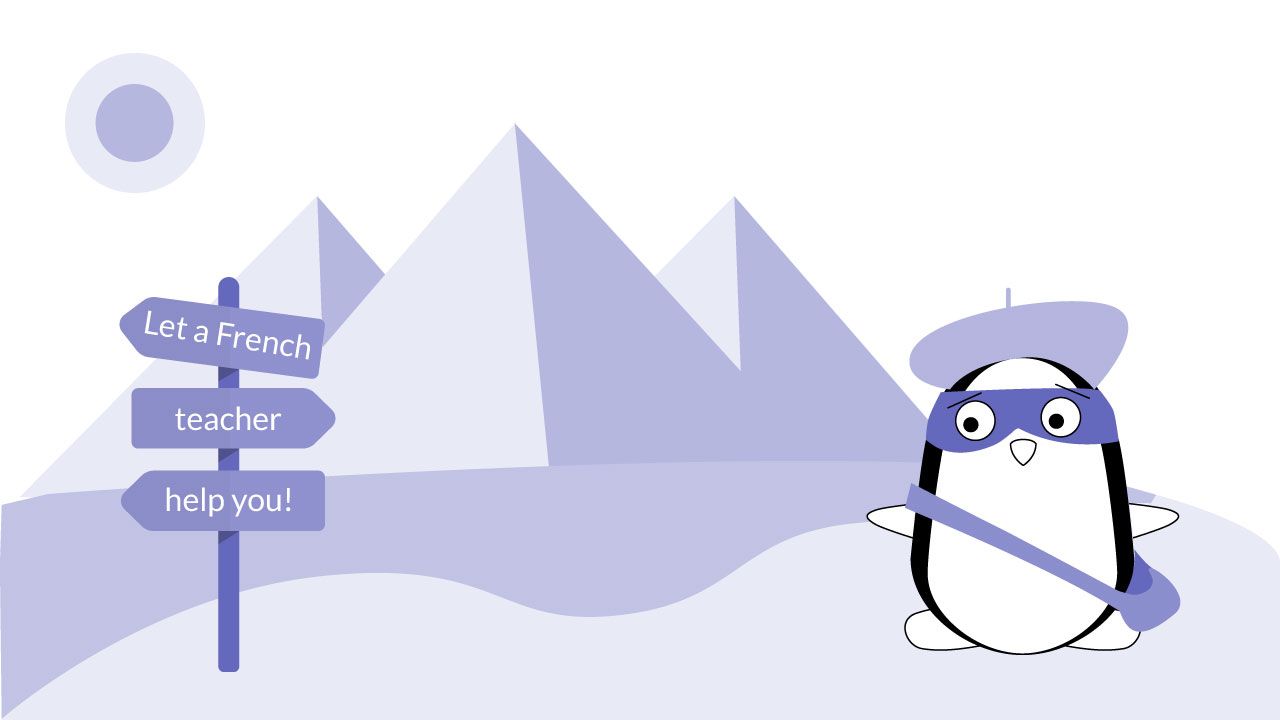
I liked being a student when I was just learning French, but I also love being on the other side of this job. Both studying and teaching are satisfying.
What things do you find the most challenging about learning French today?
When it comes to the challenges of learning French today, I would start by saying that French is the language that requires help for learning – whether that’s a tutor, some materials, or a language app. In any case, it should be something or someone that will guide you through the learning process. You need a helper.
Also, today, young people that were brought up in years of the internet and online resources, have many difficulties learning overall. I see that in my experience – people change and we need to take that into account.
This is not the problem of motivation, as students are motivated, it’s an issue of learning something by heart. Learning a language – any language – often includes a lot of memorization. And modern young people are not used to that. Why learn anything when you have internet access? You have online translators, dictionaries, and other various programs, and you’re used to them.
So this component – learning something by heart – makes the situation pretty remarkable. Someone is motivated, they want to learn, they know why, they are ready, but they are not ready to do what is related to this segment, which is memorizing huge chunks of information, and doing that not just once, but regularly.
This, in my opinion, is the main challenge of learning a language today.
The second issue is somehow similar. Any language is a system, and you need to see it as something integral. Today's youth is not ready to perceive the language as a complex whole. They see a certain part, they start working with it, and want a quick result. But learning a language doesn’t work like that.
To deal with these issues, it’s important to broaden your point of view and try to see the language as an integral system.
I notice that today’s youth has a sort of “clip thinking.” It’s not my term, but something that many scientists and psychologists use.
Imagine an Instagram or a Facebook feed – there’s a lot of colorful, vivid information, where the important, funny, and interesting things are mixed together, like short clips going one after another. And the generation that is currently studying in university is used to seeing things this way. But you can’t learn a language via an Instagram feed.
A teacher can give students one topic – “passé composé”, a corresponding rule – and their attention flips already, they need something different, something new – new topic, new information, new rules. But we didn’t even start learning the topic of “passé composé!”
This makes the learning process challenging for all the parties – both the students and the teacher, so we need to look for ways to delete old neuron connections and build new ones. In order to bridge the gap, I teach them how to handle the material first, how to manage the learning.
During the lesson, we learn to concentrate our attention on something for a longer time – so, for example, for half an hour, we talk about “passé composé” and nothing else.
The third problem is a lack of collaboration. In recent decades, we’ve been teaching our kids to be individual, to stand out. This allowed us to bring up people who understand what they want. These are people who go after their goals, not somebody else’s, and, overall, this is great.
However, the lack of сollective engagement and lack of orientation toward other people is palpable in conversations. Learning French (as well as many other things) requires interaction and dialogue. This is why, in today’s individualistic paradigm, we need to pay attention to interpersonal communication.
And, lastly, I’d like to bring up the topic of the education crisis today. To learn French successfully, you need to know how the world has been evolving in the last two millennia. Students need the knowledge of things like history and geography – when reading French texts, you should be able to translate some things thanks to this basic knowledge and your education.
This also includes the knowledge of culture, music, architecture, literature – basically, everything that surrounds us. This helps to work with the language in terms of translations. And today, many people simply lack this general knowledge.
This happens not only due to the education crisis in schools but also because people don’t read long-form material as much as before – many people don’t read books at all. Books don’t only broaden our horizons and shape our ideas about life. They also develop figurative thinking, which helps us to comprehend language in terms of its symbolism and imagery.
With all that said, how do you keep your students motivated to learn?
When I teach my students French, I always try to explain not just why they need the language. I try to emphasize why it’s important to study and show which opportunities the learning process opens for them. That’s especially important in the 21st century, in the era of open borders, the era of the Internet, online education, remote jobs, intercorporate work in different countries, etc.
I think that these days, it’s much easier for the teacher to motivate the students compared to the period when I was a student myself.
Then, we were motivated because learning a foreign language allowed people to become translators and travel more. And at that time, when the borders of the Soviet Union were closed, the ability to go abroad as a translator was very tempting and it lured us into this niche. I also think this was one of the reasons why my mother advised me to choose foreign languages, and especially French, as my future job.
I always tell my students: in France is the Sorbonne which has existed since the 12th century, it’s the centuries and even thousands of years of the fascinating history of brave, determined people who knew what they wanted - freedom and independence. They were on their way to that goal, they achieved that goal, and they're holding on to it.
France is a country of philosophy. Voltaire, Montesquieu – these are very significant names in history. Writers, poets, artists – all the basic art directions were born, among others, in France. Of course, it’s also fashion – Fashion with a capital letter, fashion now, then, and in forever.
And then there’s the culture. The French are steeped in culture; France, the French language, anything that is French, and the French themselves – culture is in all of them.
Apart from the reasons listed above, why do you think it’s worth learning French?
First, French is the language spoken by more than 200 million people worldwide. When you know French, you can easily communicate with people not only in France, but also in Belgium, Switzerland, Canada, Tunisia, and many others.
It’s also the third most used language online after English and Chinese – so knowing it will allow you to read original information on any topic, whether it’s tourism, politics, economics, cuisine, etc.
Another great reason is, French is the language of education. The French language gives you access to one of the oldest universities in Europe. The Sorbonne has existed in Paris for centuries, and for hundreds of years now, you can get higher education there.
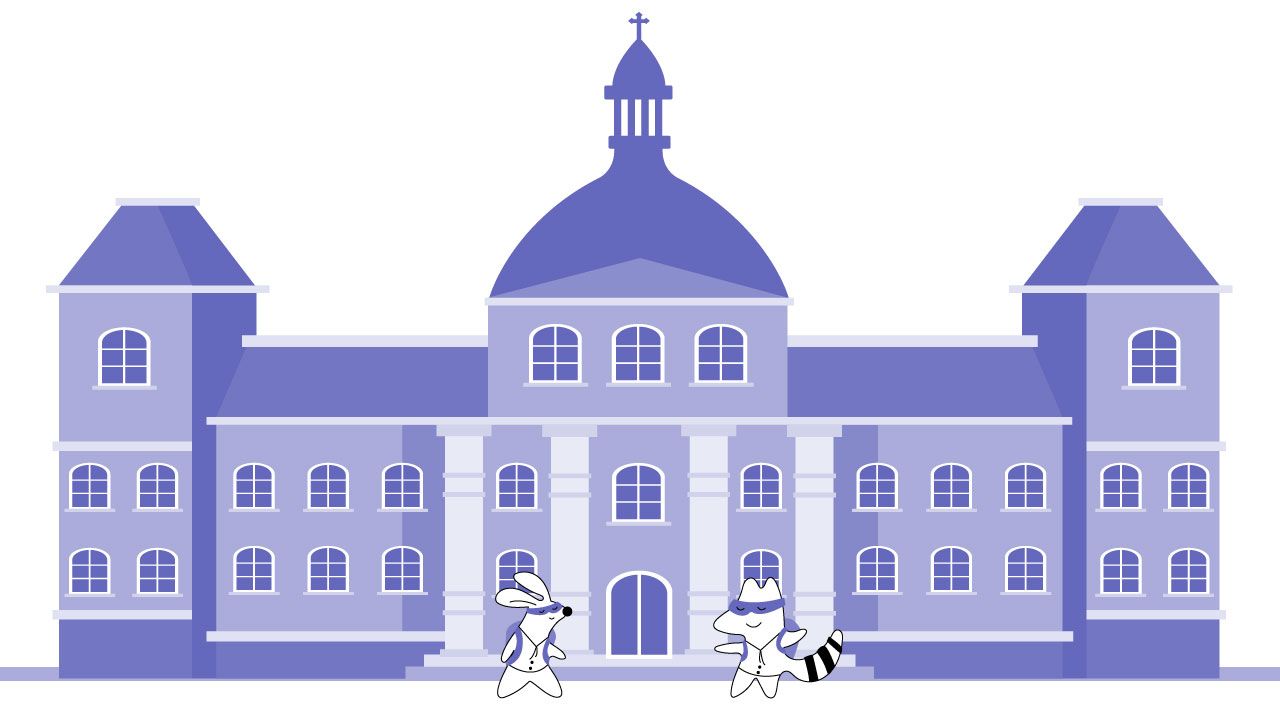
Moreover, French is the language of career. Knowledge of it increases your chances in the job market, especially if you also know English.
As I’ve already mentioned, French is the language of international law and communication in the political segment. It’s one of the official languages of the UN, for example – the most powerful people in the world use it to talk about global policies.
Of course, we learn French to travel – go to Paris, ask for une tasse de café, or call the waiter at the restaurant: garçon!, or simply ask for help in the street. Knowledge of French will allow you to feel free in all the French-speaking places in the world – whether it’s Paris or Nice or Ivory Coast.
It’s also great to learn French simply because it belongs to the Romance group, which will make it easier for you to learn other similar languages, such as Spanish or Italian. Of course, French is more difficult, so learning one of these languages afterward will be a piece of cake.
Finally, French is amazingly beautiful – I know I’ve already said that several times, but this is the truth. It’s very light, very pleasant, very interesting at the same time very rich, emotional, comfortable, but not as dense as English. So you can learn French even just for aesthetic pleasure.
What have you learned from your own journey as a French teacher?
After many years of teaching French, I always try to make as many parallels to English as possible, because in our university, French is taught as the second foreign language, with English being the first one. I want to show the phonetical, orthographical, semantical, grammatical continuity – to explain on all levels how certain words got from French into English.
I really love to teach both these languages to the same group of students, because, first of all, it gives students a chance to develop bilingualism because they switch from one language to another several times during the lesson. This allows us to see the differences and similarities and talk about these two languages in comparison – and create a system in their heads.
Which methods of learning do you prefer with French?
All my teaching methods are based on experience. I’ve been teaching French for 18 years and, of course, this includes years of observation, analysis, working on my own mistakes, and experimenting with methods to see what works and what doesn’t. You add something, remember something, stop using something, etc.
There is no continuous methodology in my classes, I mix together elements of different methods. This all depends on the materials, type of classroom (online or offline), and students’ own peculiarities and features.
When I teach French, I always try to remember – and tell my students – that learning the second and next foreign languages, especially if we’re talking about the European languages, is pretty easy.
When a person knows one foreign language, learning the second one goes swimmingly. You know the principles, structure, and syntax. And, if we’re talking about French and English, there’s undoubtedly a huge layer of common vocabulary and similar syntax – so this is much easier.
When teaching French, I also focus more on reading and speaking. In English, there’s a lot of learning time devoted to grammar, because for the student to start speaking, they need to deal with tenses first.
In French, it’s much easier – there are only 9 tenses, unlike English which has 12, and they have different structures. There’s not as much confusion and overlapping as in English, and students can start speaking much faster. Even during the first French lessons, I like giving my students small reading tasks with sentences such as “My name is …,” “I’m … years old,” “I live in …,” etc.
Such five to seven short sentences will help them be able to read and even translate the text after the first lesson, and having their notebooks as support, they can retell that out loud. Usually, this inspires much excitement among students, they are amazed that at just the first lesson, they already can say something.
When it comes to grammar, then first, of course, you need to learn the verbs belonging to the third group in the present tense. When the first and second groups are pretty easy to manage, the third group includes irregular verbs, so I require the full automation of knowledge. I offer students to learn these verbs by heart to bring their skills in this sphere to perfection.
When I was at school, my French teacher always told us: even if I come to you at night and wake you up, you have to be able to decline all the verbs in the present tense. For some reason, when I was young, I imagined it just like that – someone wakes me up in the middle of the night, and I recite: “je dis, tu dis, il dit, nous disons…” etc.
So we memorized the verbs, feared the teacher, and today I can recite them whenever and wherever I’m asked. This is one of the elements I like to use today.
In my classes, students also work on phonetics a lot – first of all, because most problems are caused by the French /r/ sound. During practice, we always have water on hand, and work to get rid of the English and Russian r’s.
I also pay attention to the nasal sounds – in classes, we pinch our noses and imagine that all class is having a runny nose, and practice words like “notamment,” “bon matin,” etc. And of course, we focus on the liaisons – linking words – to make sure everything is pronounced correctly.
Lots of reading is another important part of my classes. I read a lot to my students and try to use as much varied audio and videos into the lessons as possible so that they can hear the language in different variations, especially used by native speakers.
How important is reading for learning French?
Reading in general is important – not just for learning French or any other foreign language. If you want to be educated, if you want to consider yourself a multi-faceted person, then of course, you need to understand, at least in general, the main points in world history, in your country’s history, and in the history of the country you’re interested in – in our case, France.
If you want to learn about France, you have to read a lot, unquestionably, as some of the best word literary works belong to French writers and poets. French literature demonstrates in the best possible way the essence of language, light, playful, very mobile, and at the same time – graceful, snappy, and flirty.
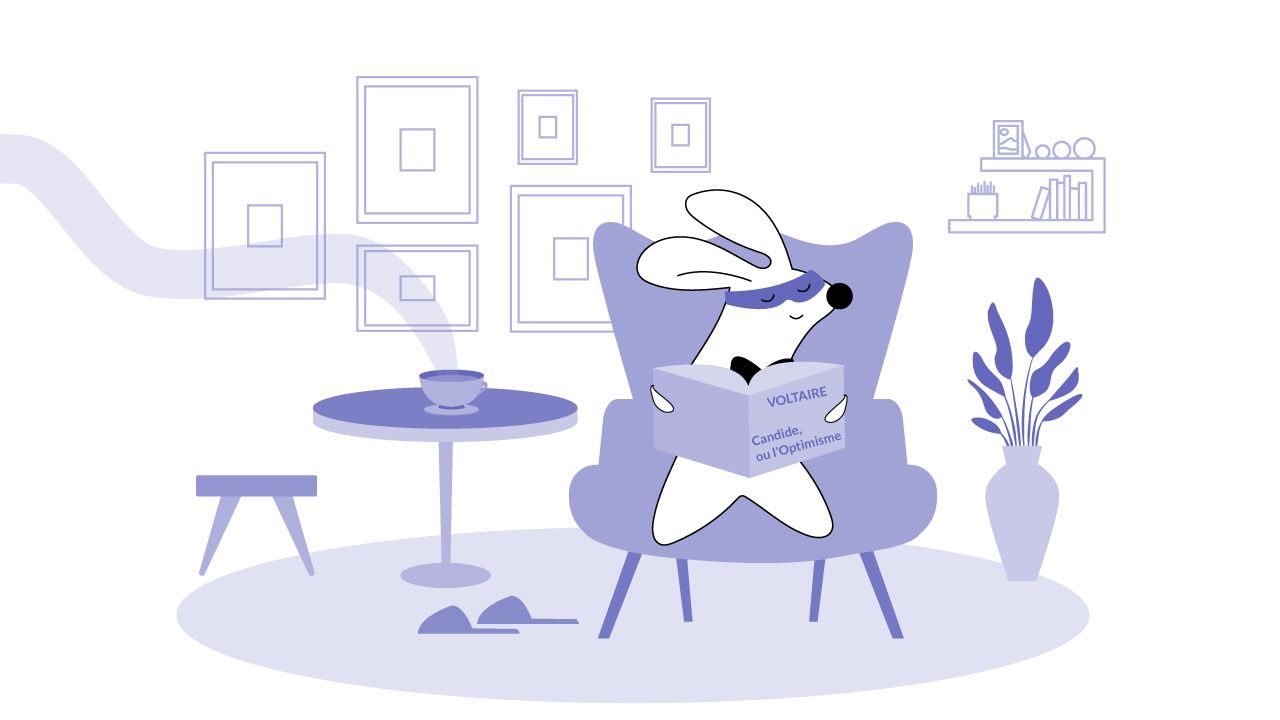
So literature – first the adapted texts and later the original ones – will help you incorporate yourself into the language. It’s a help from the outside. We concurrently work from two sides: we study the language using a regular pattern: grammar, phonetics, word meanings; and reading the authentic French literature allows us to see the language as something integral, complete.
Learn French with Langster
How hard is it to learn French? What does that depend on?
Learning French is not hard, English is much harder. First, as I’ve already mentioned, French is not as complicated when it comes to tenses. Second, translation is much easier and smoother, as there’s no polysemy (multiple meanings of one word), so intrinsic to the English language.
Additionally, French is also very melodic and beautiful, it has some kind of, springiness – which makes it very pleasant to pronounce. Thanks to that, if you don’t fixate on nasal sounds and the /r/ sound (some students do that), you can start reading very quickly and enjoy it tremendously.
Can you share some tips on what to do and what not to do?
I'm probably going to be very evasive when it comes to this question. This is because each person is very individual, and everyone has their own, individual way of learning a foreign language. Why? Because what works for one doesn’t work for another.
I’ve had experience working with students who were able to achieve amazing results thanks to watching and listening to YouTube videos only. It is funny to say that there was no methodology, no learning techniques – what they achieved happened mostly thanks to their inherited perception.
The videos were their own phonetics and vocabulary lessons, so only small corrections were needed. For some people, such a method will work, for others – it will not, which is why there’s no certain way to learn a language.
Nevertheless, when it comes to some basic advice, I would recommend reading a lot in French, listening to and watching videos – just not all videos you find on YouTube but educational videos designed for beginners. So, you should look for something with a slower pace of speech, common vocabulary words, and simple grammar.
Also, it’s a good idea to use several textbooks and not focus on just one. Find a few books, printed and electronic, use online materials, and different exercises – for example, those that already have answers, which is super convenient, especially for the teachers. You simply check the answers, and if less than 75% of the exercise is correct, I always recommend redoing it.
And, of course, it’s important to memorize words to improve your vocabulary.
What is your advice for the people who are currently learning French?
Remember that you are learning the most beautiful language in the world, the most melodic one, the language of love, beauty, and culture. You’re lucky – remember and enjoy that. And as soon as you fall in love with this language, it will also start to love you, and your interaction with the language will become more harmonious.
And then, miracles will start occurring, but you will see that for yourself.
Sometimes, during the class with people who study only English with me, students ask me to read something in French – especially poetry. It would seem: it’s a different language, you can’t understand anything, but at the same time, there’s this amazing elegance of the French language, which excites the mind, and without understanding a word, people are ready to listen and listen and listen…
So good luck to everyone who is studying la belle langue française. Au revoir.
The opinions expressed in this article may not coincide with those of the editorial staff.







